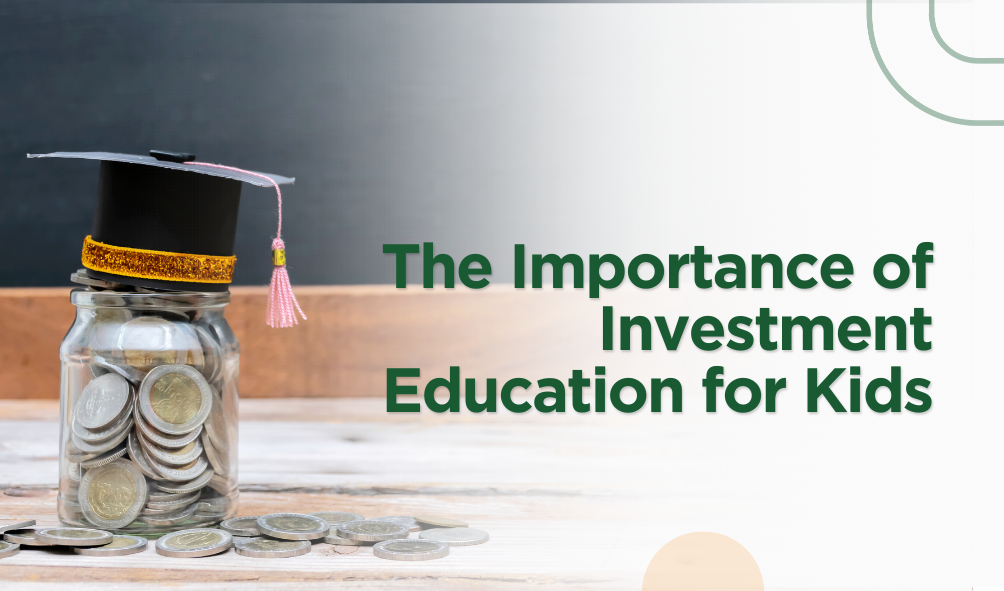The Importance of Investment Education for Kids
Investment education for children is becoming increasingly important in this modern era. With increased access to information and technology, children have the opportunity to learn about various aspects of finance at an early age. Investment education not only helps children understand basic financial concepts, but also prepares them to face financial challenges in the future.
The goal of investment education is to equip children with the necessary knowledge and skills to manage their money wisely. With a good understanding of investments, children can make better financial decisions, avoid unnecessary debt, and build wealth for their future. Investment education can also help children develop positive habits and mindsets about money, which will serve them well throughout their lives.
Why Investment Education is Important for Kids
Investment education is the process of teaching children how to manage and allocate money for long-term gains. It covers topics such as savings, spending, investing, and risk management. Teaching these concepts to children can provide various long-term benefits.
Firstly, investment education helps children understand the value of money and the importance of saving. Children who are taught to save and invest early on tend to have a wiser mindset about money. They learn not to spend money impulsively and consider the long-term benefits of every financial decision they make.
In addition, investment education also helps form healthy financial habits. Children who are used to saving and investing are more likely to continue these habits into adulthood. These habits are crucial in helping them achieve their financial goals, such as buying a home, financing their education, or preparing for retirement.
Investment education can also help children develop problem-solving and decision-making skills. By understanding different investment options and the associated risks, children learn to make better and more informed decisions. This can help them not only in financial matters, but also in other aspects of life.
Also Read: How Do You Mitigate Investment Risk?
How to Teach Investing to Kids
Teaching investments to children requires the right approach and appropriate tools. Here are some methods that can be used:
1. Educational Games: Using games that teach investment and financial concepts can make learning fun. Games like Monopoly or financial educational apps can be effective tools.
2. Practical Activities: Inviting children to participate in practical activities such as saving in a piggy bank or opening a savings account can help them understand the concepts of saving and investing in real life.
3. Formal Education: Incorporating finance and investment topics into the school curriculum can provide a strong knowledge base for children. Schools can organise workshops or specialised classes on finance.
4. Parental Role: Parents play a key role in children’s investment education. By setting a good example and involving children in family financial discussions, parents can help children understand the importance of wise money management.
Case Studies and Real Examples
There are several examples of children who have successfully understood and practised investing from an early age. For example, Warren Buffett, one of the most famous investors in the world, started investing at the age of 11. At a very young age, Buffett bought three shares of Cities Service Preferred, which he later sold for a small profit. Although the initial profit was not large, this experience taught Buffett valuable lessons about the stock market and the importance of long-term investing.
In the United States, there is a programme called ‘Junior Achievement’ that teaches children about business and finance. The programme covers topics such as money management, entrepreneurship, and investing. Junior Achievement has helped millions of children understand finance and investment concepts through practical activities and simulations.
Scandinavian countries, such as Sweden, also have strong financial education programmes. In Sweden, a programme called ‘Ung Privatekonomi’ (Young Personal Finance) teaches high school students about money management, savings and investments. The programme has shown positive results in improving financial literacy among young people.
Challenges and Solutions in Investment Education for Kids
One of the main challenges in investment education for kids is the lack of understanding and awareness from parents and educators about the importance of this topic. Many parents feel that children are too young to understand complex financial concepts.
To overcome this challenge, it is important to raise awareness and understanding of the benefits of early investment education. Workshops and seminars for parents and educators can help them understand the importance of teaching investments to children. In addition, using age-appropriate learning tools and methods can make the learning process easier and more fun.
Investment education for children is an important step in preparing them for a stable and successful financial future. By equipping children with investment knowledge and skills early on, we can help them develop healthy financial habits and the ability to make wise financial decisions. Thus, investment education not only provides short-term benefits, but also helps build a strong foundation for their future.
Also Read: How Tabdzir Can Hinder Investment

References:
– Lusardi, A., & Mitchell, O. S. (2014). The economic importance of financial literacy: Theory and evidence. *Journal of Economic Literature*, 52(1), 5-44.
– OECD. (2020). PISA 2018 Results (Volume IV): Are Students Smart about Money? OECD Publishing.
– Brown, M., Henchoz, C., & Spycher, T. (2018). How do financial literacy and financial education affect the saving behavior of young people? *Swiss Journal of Economics and Statistics*, 154(1), 1-20.
– Ung Privatekonomi. (n.d.). Www.ungprivatekonomi.se. Retrieved July 25, 2024, from https://www.ungprivatekonomi.se/
– USA, J. A. (n.d.). About JA. Junior Achievement USA. https://jausa.ja.org/about/index







